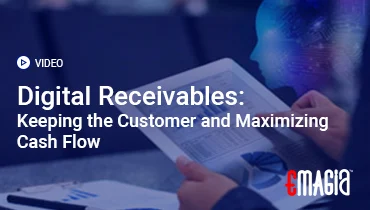In the complex and ever-evolving world of business, accounting has traditionally been the bedrock of financial stability and reporting. It’s the meticulous process of recording, summarizing, and analyzing financial transactions to provide a clear picture of a company’s economic health. However, this vital function has often been burdened by manual data entry, time-consuming reconciliations, and the inherent risk of human error. As businesses grow and transaction volumes surge, these traditional challenges can lead to delayed insights, increased operational costs, and a reactive approach to critical financial decisions.
The imperative for greater efficiency, accuracy, and strategic foresight in finance has never been more pressing. This demand is driving a profound revolution within accounting, spearheaded by Artificial Intelligence (AI). AI is not merely automating existing tasks; it is fundamentally reshaping how accounting is performed, enabling unprecedented levels of speed, precision, and predictive power. The concept of an “AI Accounting Solver” is emerging as a game-changer, offering intelligent assistance that transforms the very fabric of financial operations.
This comprehensive guide will delve deep into the world of the “AI Accounting Solver,” exploring its definition, core capabilities, and the immense benefits it delivers. We will uncover how it leverages cutting-edge AI technologies to streamline processes, reduce errors, and empower accounting professionals to become more strategic contributors. Join us as we illuminate how this intelligent solution is not just changing the game, but redefining the very essence of next generation finance.
I. The Evolution of Accounting: From Manual to Intelligent Automation
To truly appreciate the impact of an AI Accounting Solver, it’s vital to understand the journey of accounting and its enduring challenges.
Traditional Accounting Challenges: The Burden of Manual Processes
For decades, accounting departments have grappled with significant hurdles:
- Manual Data Entry: A vast amount of time spent on tedious, repetitive tasks like transcribing information from invoices, receipts, bank statements, and other financial documents. This is a primary source of manual accounting problems.
- Time-Consuming Reconciliation: The laborious process of matching transactions across various ledgers, bank accounts, and sub-systems, often leading to delays in month-end close.
- High Risk of Human Error: Manual processes are inherently susceptible to mistakes, leading to reconciliation discrepancies, misapplied payments, and inaccurate financial reporting.
- Limited Scalability: As businesses grow and transaction volumes surge, manual processes become unsustainable, requiring proportional increases in headcount.
- Reactive Insights: Accounting often focuses on historical data, meaning insights are backward-looking and reactive, rather than proactive.
These traditional accounting challenges underscore the urgent need for more efficient and accurate solutions.
The Shift Towards Automation and Its Limitations
The first wave of digital transformation brought basic accounting automation through ERP systems and specialized software. While these tools digitized many processes, they often lacked the intelligence to handle unstructured data, complex matching, or predictive analysis. They automated *rules*, but couldn’t *learn* or *reason*.
The Emergence of AI as the Next Frontier for Accounting Efficiency
AI represents the next leap. It moves beyond simple automation to intelligent automation, where systems can understand, learn, adapt, and even generate insights. This is the catalyst for the AI accounting automation revolution, transforming the very nature of financial operations.
II. What is an “AI Accounting Solver”? Defining the Intelligent Assistant
The term “AI Accounting Solver” encapsulates a new generation of tools designed to tackle complex accounting problems with artificial intelligence.
Definition: Your Intelligent Accounting Partner
An “AI Accounting Solver” is an AI-powered system designed to automate, optimize, and provide deep insights for complex accounting tasks. It leverages advanced Artificial Intelligence and Machine Learning (ML) to process financial data, perform reconciliations, generate reports, and even assist with complex journal entries, thereby augmenting the capabilities of human accounting professionals. It’s a sophisticated accounting AI software solution.
Core AI Technologies Powering the Solver
The intelligence of an “AI Accounting Solver” stems from several interconnected AI technologies:
- Machine Learning (ML): At its core, ML algorithms continuously learn from vast datasets of financial transactions, patterns, and historical data. This enables the solver to identify anomalies, predict trends, and make highly accurate classifications and matches without explicit programming.
- Natural Language Processing (NLP): NLP enables the solver to understand, interpret, and extract meaningful information from human language, whether written (e.g., emails, contracts, unstructured remittance advice) or spoken. This is crucial for processing diverse financial documents and communications.
- Generative AI (Gen AI): This cutting-edge capability allows the solver to create new content, such as drafting financial reports, summarizing complex data narratives, generating explanations for variances, or even assisting with the creation of complex journal entry descriptions.
- Robotic Process Automation (RPA): While not strictly AI, RPA often works in conjunction with AI to automate repetitive, rule-based tasks like data entry, report generation, and data transfer between systems, freeing up accountants for higher-value work.
This combination of technologies makes for truly intelligent accounting solutions.
Distinction from Basic Accounting Software
Unlike traditional accounting software that primarily digitizes manual processes, an “AI Accounting Solver” introduces intelligence and learning capabilities. It can handle unstructured data, adapt to new scenarios, and provide predictive insights, moving beyond simple automation to true augmentation of human expertise. It’s a leap forward in AI in accounting.
III. Key Features and Capabilities of an “AI Accounting Solver”
An “AI Accounting Solver” offers a robust suite of functionalities designed to address the most pressing challenges in modern accounting.
A. Automated Data Entry & Classification: The Foundation of Efficiency
This is often the first and most impactful area for efficiency gains:
- Intelligent Document Processing (IDP): The solver uses AI-powered OCR and NLP to automatically extract and validate data from various financial documents, such as invoices, receipts, bank statements, and purchase orders, regardless of their format. This is key for AI invoice processing and general document automation finance.
- Automated Transaction Categorization: AI algorithms learn from historical data to automatically categorize transactions, reducing manual coding and ensuring consistency in the general ledger.
- Reduced Manual Input: Drastically minimizes the need for human data entry, leading to faster processing and fewer errors.
B. Smart Reconciliation & Anomaly Detection: Ensuring Data Integrity
This feature is crucial for maintaining accurate financial records:
- Automated Matching: The solver intelligently matches transactions across disparate ledgers, bank statements, and sub-systems (e.g., Accounts Receivable, Accounts Payable). It can handle complex matching scenarios, including partial payments and deductions. This is the core of AI reconciliation and automated bank reconciliation.
- AI-Driven Anomaly Detection: AI algorithms continuously monitor financial data for unusual patterns, outliers, or deviations from normal behavior. This helps in the early identification of discrepancies, errors, and potential fraud. This is vital for fraud detection accounting and general anomaly detection finance.
- Faster Month-End Close: By automating reconciliation, the solver significantly reduces the time and effort required for month-end and year-end closing processes.
C. Predictive Analytics for Financial Forecasting: Gaining Strategic Foresight
Beyond historical reporting, the solver provides forward-looking insights:
- AI Financial Forecasting: It leverages Machine Learning models to analyze historical financial data, market trends, and external economic indicators to generate highly accurate predictions for cash flow, revenue, expenses, and profitability. This is a key predictive accounting capability.
- Scenario Planning & “What-If” Analysis: Users can ask the solver to model various financial scenarios (e.g., impact of a new pricing strategy, changes in economic conditions) and instantly receive projections, aiding strategic planning and risk assessment.
- Budget Optimization: Provides insights to create more realistic and dynamic budget models, improving resource allocation.
This transforms cash flow prediction AI into a powerful strategic tool.
D. Generative AI for Reporting & Insights: Intelligent Content Creation
This cutting-edge capability streamlines financial communication and analysis:
- Automated Report Drafting: The solver can automatically draft initial versions of financial reports, management discussion and analysis (MD&A), and executive summaries based on underlying financial data. This is a major benefit of generative AI accounting and AI financial reporting.
- Narrative Generation: It can synthesize complex data into understandable narratives, explaining variances or trends in plain language, aiding decision-makers.
- Natural Language Querying: Accounting professionals can ask complex financial questions in natural language (e.g., “Why did our operating expenses increase last quarter?”, “Summarize our cash position”) and receive instant, intelligent answers.
This allows for more insightful and efficient AI powered insights.
E. Automated Journal Entry Generation & Posting: Ensuring Compliance and Accuracy
The solver can intelligentize even the most fundamental accounting tasks:
- AI Journal Entries: It can automatically generate and propose complex journal entries for accruals, deferrals, depreciation, intercompany transactions, and other adjustments based on predefined rules and learned patterns.
- Compliance Assurance: Helps ensure that all accounting entries adhere to GAAP (Generally Accepted Accounting Principles) or IFRS (International Financial Reporting Standards).
- Reduced Manual Posting: Minimizes the need for manual creation and posting of routine or complex journal entries, improving efficiency and accuracy in accounting entry automation.
IV. Transformative Benefits of an “AI Accounting Solver”
The adoption of an “AI Accounting Solver” delivers a compelling array of advantages that directly impact a company’s financial performance and strategic agility.
1. Unprecedented Efficiency & Productivity
By automating data entry, reconciliation, and report generation, the solver drastically reduces the time spent on manual processes. This leads to significant operational efficiencies, allowing accounting professionals to accomplish more with existing resources and focus on higher-value, strategic tasks. This is the essence of financial efficiency AI.
2. Enhanced Accuracy & Reduced Errors
AI-powered automation minimizes human error in data transcription, calculation, and matching. This results in cleaner, more reliable financial data, enhancing the integrity of reports, forecasts, and overall financial statements. This is a key accounting automation benefit.
3. Faster, Data-Driven Decision-Making
With real-time access to accurate data, predictive insights, and the ability to rapidly generate reports, finance leaders can make faster, more informed, and higher-quality decisions. This agility is critical in today’s volatile business environment, enabling truly strategic accounting.
4. Significant Cost Reduction
Automating labor-intensive tasks directly translates into reduced operational costs. Fewer manual hours mean lower labor expenses, allowing resources to be reallocated to more strategic initiatives. This contributes to overall cost reduction finance.
5. Improved Compliance & Audit Readiness
The solver ensures consistent application of accounting rules, creates clear audit trails, and helps identify potential compliance breaches. This strengthens internal controls, reduces audit risks, and simplifies the audit process.
6. Strategic Empowerment of Accounting Professionals
The solver elevates the role of accounting professionals from data processors to strategic advisors. By handling the mundane, it frees them to engage in deeper analysis, business partnering, and complex problem-solving, enhancing job satisfaction and career development. This is the future of AI in accounting.
V. Challenges and Considerations in Adopting an “AI Accounting Solver”
While the benefits are transformative, implementing an “AI Accounting Solver” is not without its challenges and critical considerations.
1. Data Quality and Integration Complexities
AI models are only as good as the data they are trained on. Many organizations struggle with fragmented, inconsistent, or poor-quality data across legacy systems. Solution: Invest in data cleansing, standardization, and robust integration strategies (e.g., APIs, data lakes) to create a unified and reliable data foundation. This is a common AI adoption challenges accounting hurdle.
2. Talent Gap and Reskilling Needs
The widespread adoption of AI requires a new skill set for accounting professionals. Solution: Invest in comprehensive training programs to upskill your team in AI literacy, data analytics, and strategic thinking. Emphasize how the solver augments their roles, fostering a culture of continuous learning and collaboration between humans and AI. This addresses the need for reskilling finance professionals.
3. Change Management and User Adoption Resistance
Resistance to new technology is common, both from internal teams and sometimes external stakeholders. Solution: Clearly communicate the benefits of the AI Accounting Solver to your team, emphasizing how it frees them from mundane tasks for more strategic work. Involve users in the implementation process and provide ongoing support and champions. This ensures smooth adoption.
4. Ethical Concerns and Governance
The use of AI in financial decision-making raises ethical questions around fairness, transparency (“black box” issues), and accountability. Solution: Establish clear ethical guidelines for AI use, implement explainable AI (XAI) where possible, and develop robust governance frameworks to ensure responsible and compliant AI deployment. This is vital for ethical AI accounting.
5. Implementation Complexity and Cost
Integrating an AI Accounting Solver with existing ERP systems, managing vast datasets, and building robust AI models can be technically complex and require substantial initial investment. Solution: Start with pilot projects that demonstrate clear ROI, then scale incrementally. Choose scalable cloud-based AI solutions that can grow with your business needs. Focus on the long-term gains in efficiency and profitability.
Emagia: Pioneering Autonomous Finance with an Intelligent AI Accounting Solver
For enterprises seeking to achieve unparalleled financial efficiency, accuracy, and strategic advantage, Emagia offers a transformative, AI-powered Autonomous Finance platform that acts as a comprehensive “AI Accounting Solver.” While many AI features contribute to efficiency, Emagia’s core strength lies in its intelligent automation and predictive capabilities, which directly address the most significant bottlenecks in the Order-to-Cash (O2C) cycle—areas that have a profound impact on overall accounting accuracy and efficiency.
Emagia’s platform, including solutions like GiaCASH (Intelligent Cash Application), GiaCOLLECT (AI-Driven Collections), and GiaCREDIT (AI-Powered Credit Management), leverages cutting-edge Artificial Intelligence, Machine Learning, and Natural Language Processing to provide a holistic AI powered finance solution. This means:
- Automated Cash Application and Reconciliation: GiaCASH AI intelligently extracts remittance data from any format and automatically matches payments to invoices with extraordinary precision, dramatically reducing unapplied cash and streamlining reconciliation—a direct boost to accounting accuracy and efficiency.
- Predictive Insights for Bad Debt and Cash Flow: Emagia’s AI provides accurate forecasts for cash flow and identifies at-risk accounts, allowing for proactive adjustments to financial statements and reserves, enhancing the reliability of your financial statements with AI.
- Intelligent Journal Entry Support: By ensuring accurate and timely application of cash and management of receivables, Emagia’s platform provides clean data that simplifies the creation of accurate journal entries related to revenue recognition and bad debt provisions.
- Comprehensive Financial Visibility: Emagia’s dashboards and analytics provide real-time, accurate views of financial health, enabling better decision-making across all accounting functions.
By intelligentizing and automating these high-volume, manual processes, Emagia directly contributes to the core functions of an “AI Accounting Solver,” delivering immediate, measurable improvements in speed, accuracy, and cost reduction. It frees accounting and finance teams from mundane tasks, allowing them to leverage other AI features for deeper strategic analysis and decision-making. Emagia empowers businesses to move towards a truly autonomous finance future, where efficiency is not just a goal, but an inherent characteristic of their operations, making AI in bookkeeping a strategic advantage.
Frequently Asked Questions (FAQs) About AI Accounting Solver
What is an AI Accounting Solver?
An AI Accounting Solver is an AI-powered system designed to automate, optimize, and provide insights for complex accounting tasks, leveraging Machine Learning, Natural Language Processing, and Generative AI to enhance efficiency, accuracy, and strategic decision-making in finance.
How does AI in accounting improve efficiency?
AI in accounting improves efficiency by automating repetitive tasks like data entry, reconciliation, and report generation, reducing manual effort, minimizing human error, accelerating processing times, and freeing up accounting professionals for more strategic work.
Can an AI Accounting Solver help with fraud detection?
Yes, an AI Accounting Solver can significantly help with fraud detection accounting by using AI algorithms to continuously monitor financial transactions for unusual patterns, anomalies, or deviations from normal behavior that could indicate fraudulent activity, flagging them for immediate review.
What are the benefits of automated bank reconciliation with AI?
The benefits of automated bank reconciliation with AI include drastically reduced reconciliation time, increased accuracy by minimizing human error, real-time matching of transactions, and the ability to quickly identify and resolve discrepancies, leading to a faster month-end close.
Does generative AI accounting replace human accountants?
No, generative AI accounting does not replace human accountants. Instead, it augments their capabilities by automating content creation tasks like drafting reports and summaries, allowing accountants to focus on higher-value activities that require critical thinking, judgment, and strategic analysis.
What is the future of accounting with AI?
The future of accounting with AI involves a shift towards more strategic, insights-driven roles for accountants. AI will handle repetitive tasks, provide predictive analytics, and automate reconciliation, enabling professionals to focus on financial analysis, risk management, and business partnering, leading to more strategic accounting.
How does an AI Accounting Solver handle unstructured data?
An AI Accounting Solver handles unstructured data (like text from emails, PDFs, or scanned documents) using Intelligent Document Processing (IDP) and Natural Language Processing (NLP). These technologies extract, interpret, and validate relevant financial information, converting it into structured data for processing.
Conclusion: The Strategic Imperative of an AI-Driven Accounting Future
In the evolving landscape of modern business, the adoption of an “AI Accounting Solver” is no longer a luxury but a strategic imperative. By leveraging the immense power of Artificial Intelligence, organizations can move beyond the limitations of traditional, manual accounting processes, transforming their finance functions into engines of efficiency, accuracy, and strategic foresight.
The ability of an AI Accounting Solver to automate data entry, intelligentize reconciliation, provide predictive insights, and even generate financial narratives empowers accounting professionals to elevate their roles. This shift leads to significant cost reductions, faster decision-making, improved compliance, and ultimately, a more robust and transparent financial foundation for the entire organization. Embracing an AI Accounting Solver is investing in the future of your finance department, positioning your business for unparalleled success in the era of next generation finance.


